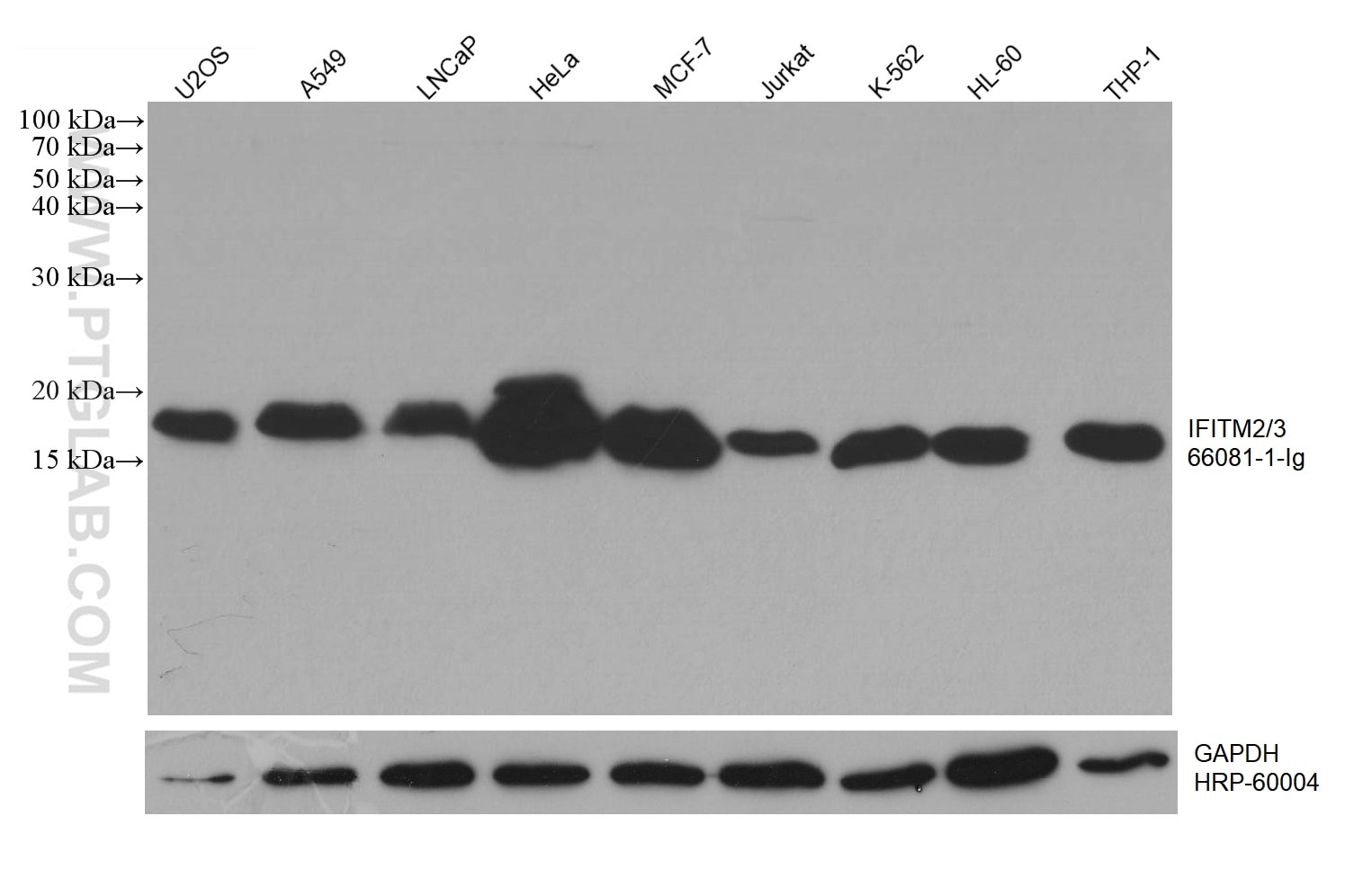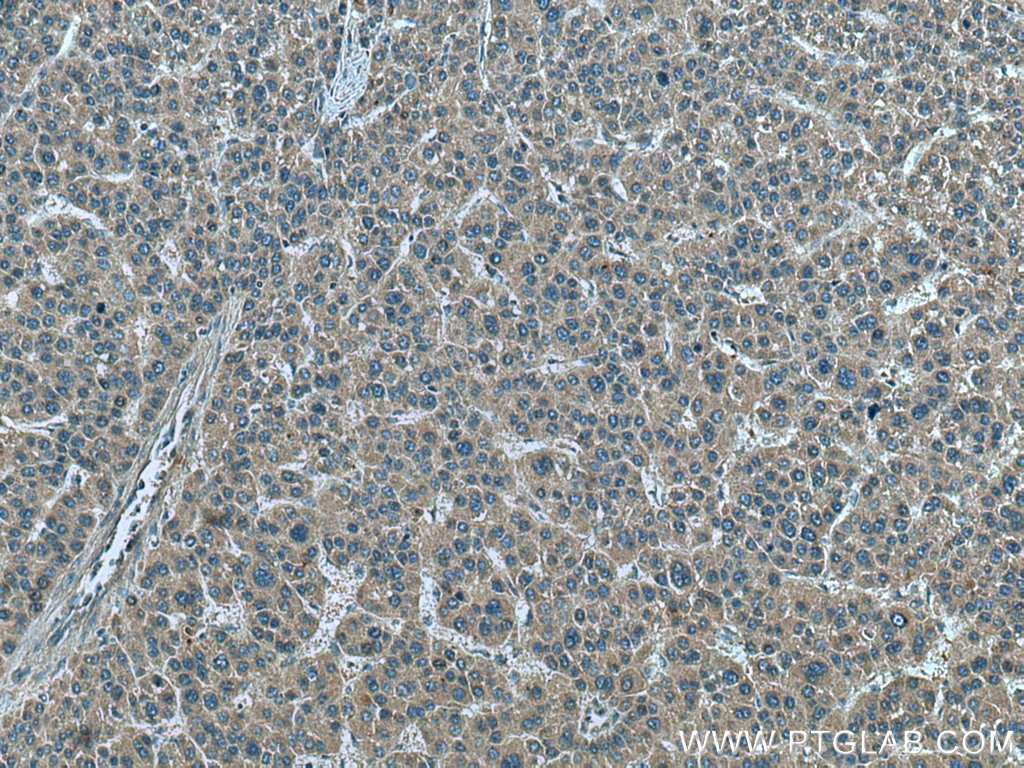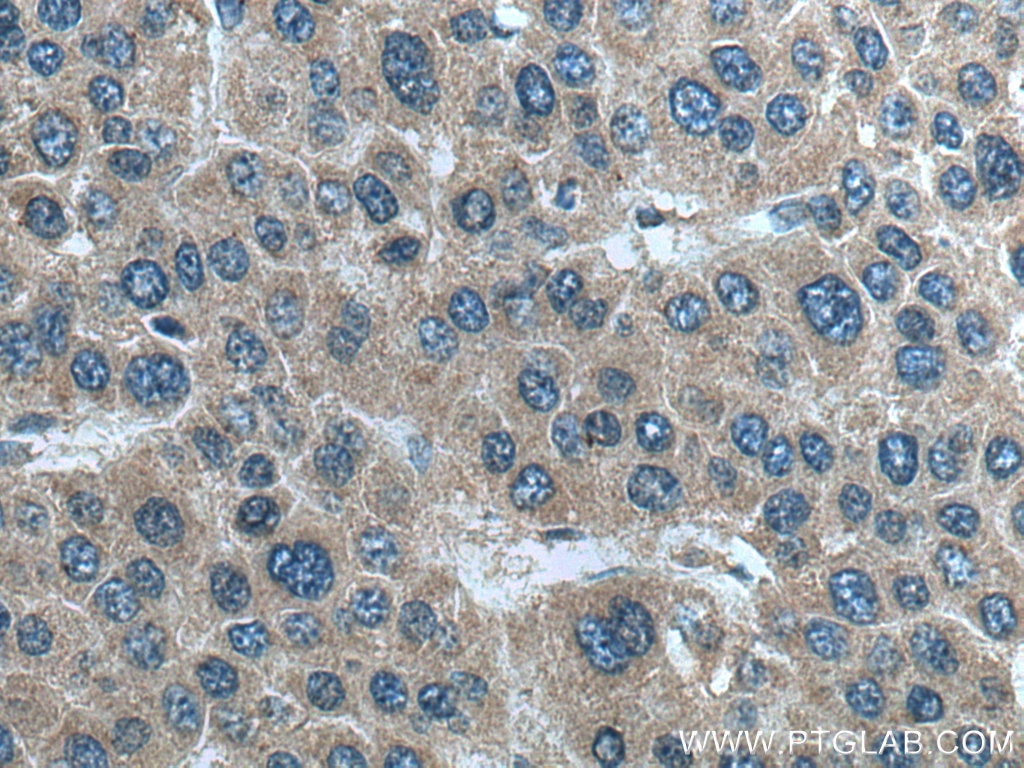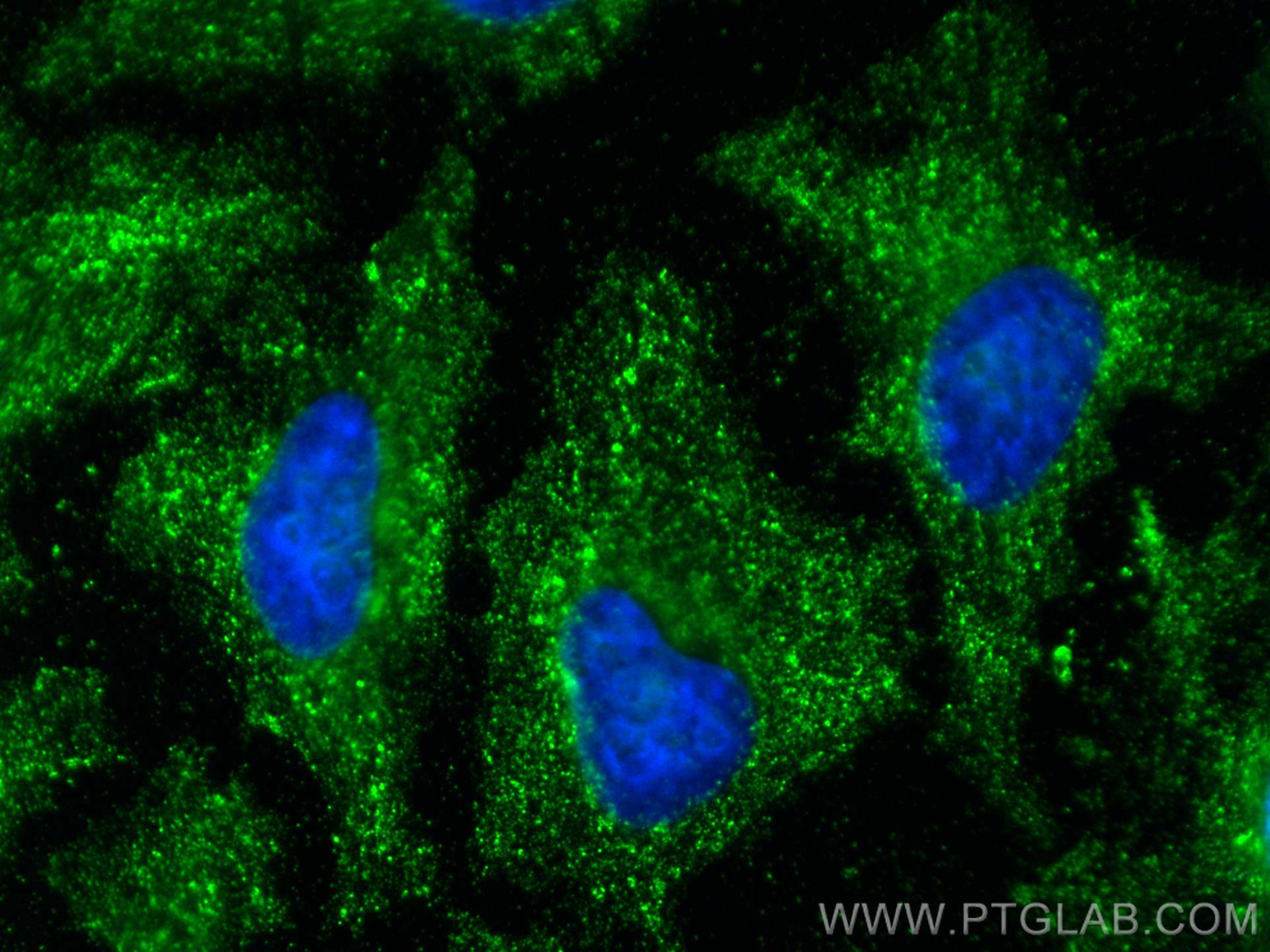- Phare
- Validé par KD/KO
Anticorps Monoclonal anti-IFITM2/3
IFITM2/3 Monoclonal Antibody for WB, IHC, IF/ICC, ELISA
Hôte / Isotype
Mouse / IgG1
Réactivité testée
Humain
Applications
WB, IHC, IF/ICC, IP, ELISA
Conjugaison
Non conjugué
CloneNo.
2E8D12
N° de cat : 66081-1-Ig
Synonymes
Galerie de données de validation
Applications testées
| Résultats positifs en WB | cellules U2OS, cellules A549, cellules HeLa, cellules HL-60, cellules Jurkat, cellules K-562, cellules LNCaP, cellules MCF-7, cellules THP-1 |
| Résultats positifs en IHC | tissu de cancer du foie humain, il est suggéré de démasquer l'antigène avec un tampon de TE buffer pH 9.0; (*) À défaut, 'le démasquage de l'antigène peut être 'effectué avec un tampon citrate pH 6,0. |
| Résultats positifs en IF/ICC | cellules HeLa, |
Dilution recommandée
| Application | Dilution |
|---|---|
| Western Blot (WB) | WB : 1:5000-1:50000 |
| Immunohistochimie (IHC) | IHC : 1:500-1:2000 |
| Immunofluorescence (IF)/ICC | IF/ICC : 1:200-1:800 |
| It is recommended that this reagent should be titrated in each testing system to obtain optimal results. | |
| Sample-dependent, check data in validation data gallery | |
Applications publiées
| KD/KO | See 2 publications below |
| WB | See 11 publications below |
| IHC | See 1 publications below |
| IF | See 8 publications below |
| IP | See 1 publications below |
Informations sur le produit
66081-1-Ig cible IFITM2/3 dans les applications de WB, IHC, IF/ICC, IP, ELISA et montre une réactivité avec des échantillons Humain
| Réactivité | Humain |
| Réactivité citée | Humain |
| Hôte / Isotype | Mouse / IgG1 |
| Clonalité | Monoclonal |
| Type | Anticorps |
| Immunogène | IFITM2/3 Protéine recombinante Ag17863 |
| Nom complet | interferon induced transmembrane protein 3 (1-8U) |
| Poids moléculaire observé | 15-20 kDa |
| Numéro d’acquisition GenBank | BC070243 |
| Symbole du gène | IFITM3 |
| Identification du gène (NCBI) | 10410 |
| Conjugaison | Non conjugué |
| Forme | Liquide |
| Méthode de purification | Purification par protéine G |
| Tampon de stockage | PBS with 0.02% sodium azide and 50% glycerol |
| Conditions de stockage | Stocker à -20°C. Stable pendant un an après l'expédition. L'aliquotage n'est pas nécessaire pour le stockage à -20oC Les 20ul contiennent 0,1% de BSA. |
Informations générales
IFITM3, also named as interferon-inducible protein 1-8U, belongs to the CD225 family. It is IFN-induced antiviral protein that mediates cellular innate immunity to at least three major human pathogens, namely influenza A H1N1 virus, West Nile virus (WNV), and dengue virus, by inhibiting the early steps of replication. IFITM3 is identified as interferon-induced cellular proteins that restrict infections by retroviruses and filoviruses and of influenza virus and flaviviruses, respectively. IFITM3, the most potent antiviral IFITM, was found to inhibit an uncharacterized early infectious event after VSV endocytosis, but before primary transcription of its viral genome. IFITM proteins are viral restriction factors that can inhibit infection mediated by the influenza A virus (IAV) hemagglutinin (HA) protein. They differentially restrict the entry of a broad range of enveloped viruses, and modulate cellular tropism independently of viral receptor expression. This antibody recognizes both IFITM2 and IFITM3.
Protocole
| Product Specific Protocols | |
|---|---|
| WB protocol for IFITM2/3 antibody 66081-1-Ig | Download protocol |
| IHC protocol for IFITM2/3 antibody 66081-1-Ig | Download protocol |
| IF protocol for IFITM2/3 antibody 66081-1-Ig | Download protocol |
| Standard Protocols | |
|---|---|
| Click here to view our Standard Protocols |
Publications
| Species | Application | Title |
|---|---|---|
Science IFITM proteins inhibit placental syncytiotrophoblast formation and promote fetal demise. | ||
Proc Natl Acad Sci U S A mTOR inhibitors lower an intrinsic barrier to virus infection mediated by IFITM3. | ||
EMBO Rep Natural mutations in IFITM3 modulate post-translational regulation and toggle antiviral specificity. | ||
MBio Late Endosomal/Lysosomal Cholesterol Accumulation Is a Host Cell-Protective Mechanism Inhibiting Endosomal Escape of Influenza A Virus. | ||
Front Immunol Influenza A Virus Facilitates Its Infectivity by Activating p53 to Inhibit the Expression of Interferon-Induced Transmembrane Proteins.
|
Avis
The reviews below have been submitted by verified Proteintech customers who received an incentive for providing their feedback.
FH Claudia (Verified Customer) (06-20-2022) | The antibody worked very well for the analysis of IFITM2/3 expression in permanent cell lines.
|





